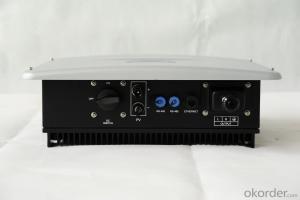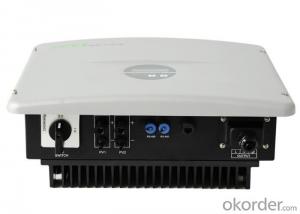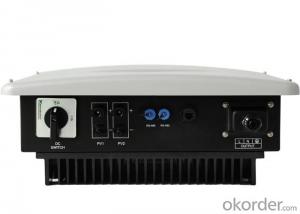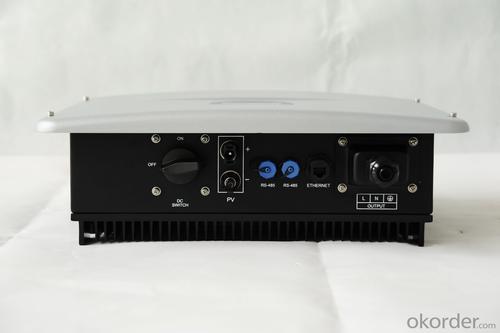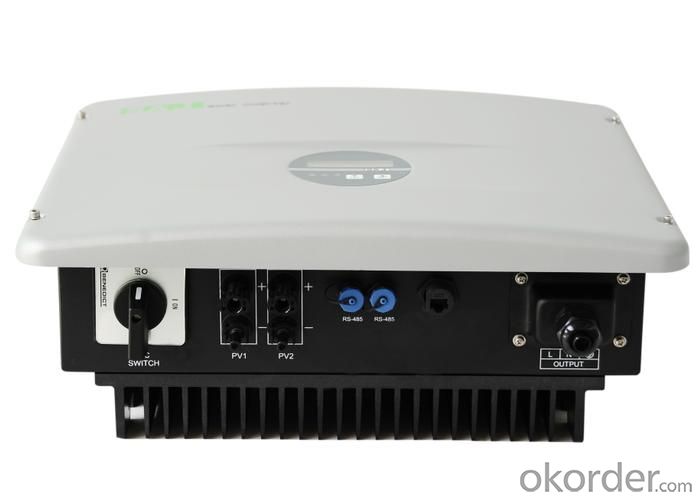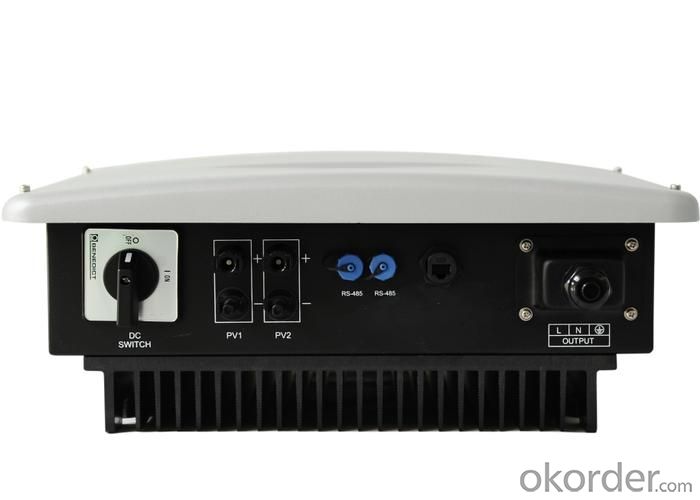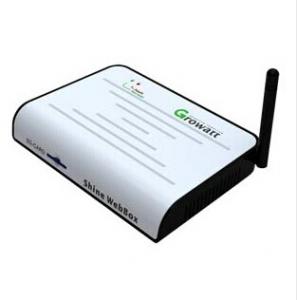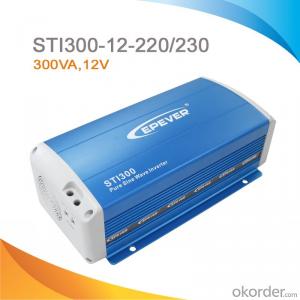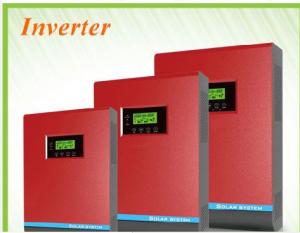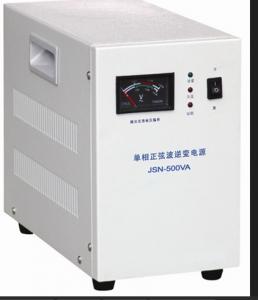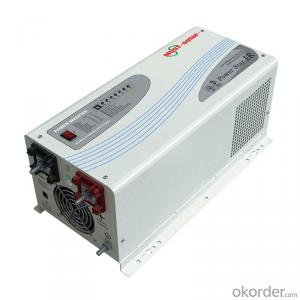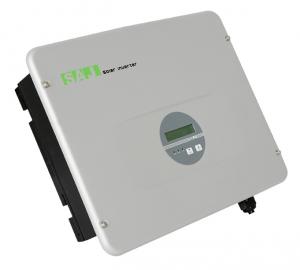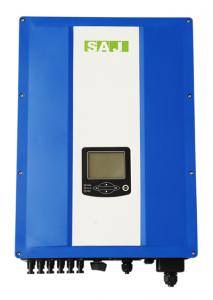Reliable Solar Inverter Sununo-TL2K with 1 MPPT
- Loading Port:
- Guangzhou
- Payment Terms:
- TT OR LC
- Min Order Qty:
- 1 pc
- Supply Capability:
- 2000 pc/month
OKorder Service Pledge
OKorder Financial Service
You Might Also Like
The Sununo-TL1K/1.5K/2K solar inverter offers a range of benefits, including maximum energy harvesting,
through both its highspeed Maximum Power Point Tracker (MPPT) and transformerless technology.Combing the wide input voltage range makes the inverter suitable to low power installations with reduced string size.
The LCD display is to check real-time performance through its integrated data logger and more communication interfaces make it convenient for remote performance monitoring. The Sununo-TL1K/1.5K/2K is an ideal inverter for smaller residential PV plants.
Futures:
■Super junction MOSFET integrated with 97.4% Max. efficiency.
■ Wide MPPT voltage range and low minimum MPPT voltage for flexible configuration.
■ Transformerless design for lower cost and compact size.
■ IP65 and fan-less for longer-term reliability.
■ Ethernet/ Wi-Fi communication interface.
■ Integrated Web Server for local and internet monitoring.
■ Support SAJ Web Portal Monitoring Solutions.
Technical data:
| Model | Sununo-TL1K | Sununo-TL1.5K | Sununo-TL2K |
| Max. DC power [W] | 1200 | 1800 | 2300 |
| Max. DC voltage [V] | 480 | 480 | 480 |
| MPPT DC voltage Range [V] | 90-425 | 100-425 | 100-425 |
| Nominal DC voltage [V] | 360 | 360 | 360 |
| start voltage [V] | 100 | 150 | 150 |
| Min.DC voltage [V] | 80 | 100 | 100 |
| Max.DC input current [A] | 10 | 11 | 12 |
| Number of MPPT | 1 | 1 | 1 |
| string per MPPT | 1 | 1 | 1 |
| DC switch | optional | optional | optional |
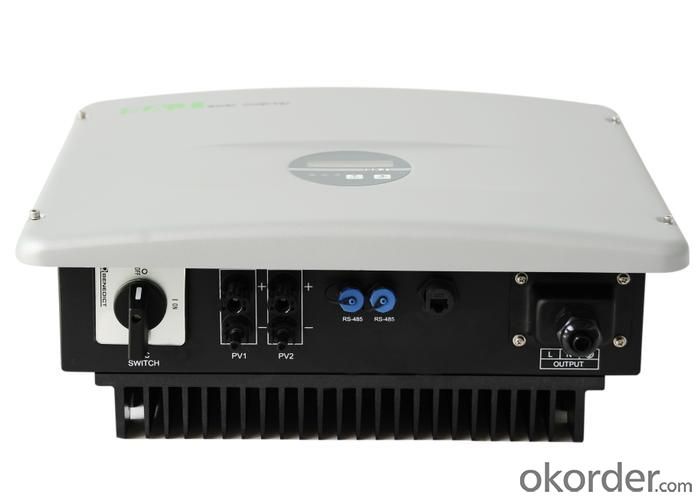
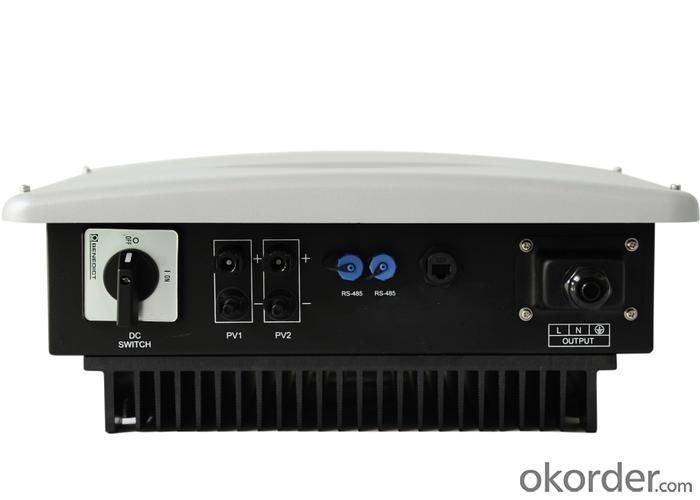
1. How can I get after sale service?
We have established after sale service center in Europe, North America, south East Asia, etc. you can email us or call the hot line.
2. Do you have shipping insurance for our goods?
We will buy shipping insurance according to customers’ demand.
3. Do you accept OEM or customized design?
OEM & ODM, any your customized lightings we can help you to design and put into product.
4. What if I need specific design?
Distributorship are offered for your unique design and some our current models.
- Q: How does the power factor affect the performance of a solar inverter?
- The power factor affects the performance of a solar inverter by determining the efficiency and reliability of the system. A low power factor can result in increased losses and reduced overall efficiency, leading to higher energy consumption and reduced power output. In contrast, a high power factor improves system performance by minimizing losses and maximizing the utilization of available power, resulting in higher efficiency and better overall performance of the solar inverter.
- Q: How does a solar inverter handle harmonic distortion?
- A solar inverter handles harmonic distortion by using filters and control algorithms to reduce or eliminate the harmonics generated by the solar panels. These filters and algorithms help ensure that the electricity generated by the solar panels is clean and does not introduce any unwanted harmonics into the electrical grid.
- Q: What is the importance of overcurrent protection in a solar inverter?
- The importance of overcurrent protection in a solar inverter is to ensure the safety and longevity of the system. Overcurrent protection helps prevent damage to the inverter and other components by interrupting the flow of excessive current. It safeguards against potential hazards such as overheating, electrical fires, and equipment failures. Additionally, overcurrent protection helps maintain the efficiency and performance of the solar inverter, ensuring optimal power generation and system reliability.
- Q: What is the role of a solar inverter in preventing system failures?
- The role of a solar inverter in preventing system failures is to convert the direct current (DC) produced by solar panels into alternating current (AC) that can be used to power electrical devices. By continuously monitoring the performance of the solar system and ensuring the optimal conversion of power, the inverter helps to prevent issues such as voltage fluctuations, overloading, and short circuits. It also provides vital protection by promptly detecting and responding to any faults or abnormalities in the system, thereby minimizing the risk of system failures and maximizing the overall efficiency and reliability of the solar power generation.
- Q: What are the key features to consider when purchasing a solar inverter?
- When purchasing a solar inverter, some key features to consider are the capacity and efficiency of the inverter, its compatibility with your solar panel system, the type of inverter technology used (such as string or microinverters), the warranty and reliability of the brand, and any additional features or smart capabilities offered by the inverter.
- Q: How does a solar inverter protect against lightning strikes?
- A solar inverter typically has built-in protective measures, such as surge protection devices and grounding systems, that help safeguard against lightning strikes. These protective measures divert the high voltage surge caused by lightning away from the inverter, ensuring its safety and preventing damage to the solar power system.
- Q: Can a solar inverter be used with different types of communication interfaces?
- Yes, a solar inverter can be used with different types of communication interfaces. Most modern solar inverters are designed to be compatible with various communication protocols such as Wi-Fi, Ethernet, RS-485, and Bluetooth. This allows for easy integration and communication with different monitoring systems, smart devices, and the grid.
- Q: How does the quality of the AC waveform affect the performance of a solar inverter?
- The quality of the AC waveform directly affects the performance of a solar inverter. A poor or distorted waveform can lead to various issues such as reduced efficiency, increased power losses, and potential damage to the inverter. On the other hand, a clean and stable AC waveform ensures optimal functioning of the inverter, resulting in improved overall performance and reliability.
- Q: What is the role of a solar inverter in a solar-powered desalination system?
- The role of a solar inverter in a solar-powered desalination system is to convert the direct current (DC) generated by the solar panels into alternating current (AC) that can be used to power the desalination equipment. It ensures the efficient utilization of solar energy by transforming it into a usable form for the desalination process.
- Q: What is the maximum AC power output of a solar inverter?
- The maximum AC power output of a solar inverter depends on its size and capacity. Generally, residential solar inverters have a maximum AC power output ranging from 1 kilowatt (kW) to 10 kW, while larger commercial or utility-scale inverters can have outputs exceeding 1 megawatt (MW).
Send your message to us
Reliable Solar Inverter Sununo-TL2K with 1 MPPT
- Loading Port:
- Guangzhou
- Payment Terms:
- TT OR LC
- Min Order Qty:
- 1 pc
- Supply Capability:
- 2000 pc/month
OKorder Service Pledge
OKorder Financial Service
Similar products
Hot products
Hot Searches
Related keywords
